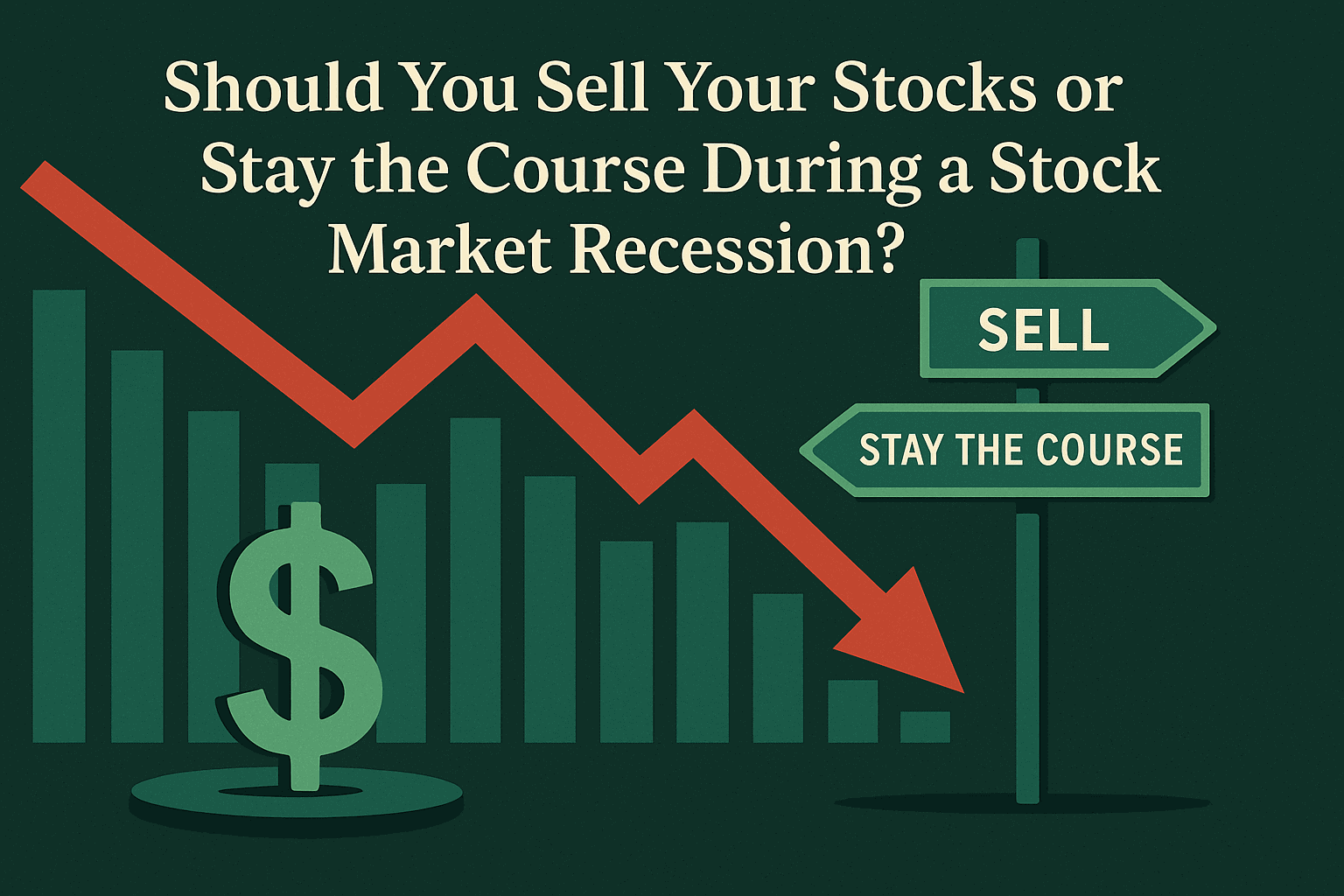
Your portfolio just dropped 15% in two weeks. The news cycle runs on repeat: "Market turmoil," "Investor panic," "Economic uncertainty." Your phone buzzes with alerts about your 401(k) balance. Your stomach knots up.
Sound familiar? You're not alone.
When a stock market recession hits, millions of investors face the same question: Do I cut my losses or ride it out?
A stock market recession means stock prices fall for weeks or months. This can happen even when the broader economy looks stable. The market often moves on emotion as much as facts.
Several things can trigger a market downturn:
Think of it this way: the stock market is like a crowded theater. When someone yells "fire," people rush for the exits whether there's actual danger or not.
During market recessions, your portfolio will lose value. Stocks usually get hit hardest, but bonds and real estate can fall too. Growth stocks often drop more than defensive plays like utilities or consumer staples.
If you're 30 and saving for retirement, a temporary 20% drop matters less than if you're 65 and need that money next year. Time changes everything in investing.
Your quarterly statement might look scary, but remember: you haven't lost money until you sell.
If you’re unsure how to assess your portfolio mix, reviewing the Boglehead investment approach can offer a simple, disciplined framework.
Selling during a stock market recession feels like taking control. You stop the bleeding. You preserve what's left.
But here's the problem: you lock in your losses. What looked like a smart move can become a costly mistake when markets recover.
Consider Sarah, who sold all her stocks during March 2020 when COVID-19 crashed markets. She avoided further losses but missed the sharp rebound that followed. Her "safe" decision cost her thousands in missed gains.
That said, selling isn't always wrong. You might need to sell if:
Just don't sell because everyone else is selling.
For those concerned about cash needs, understanding liquid net worth can help clarify what’s truly available in an emergency.
Markets have a track record: they go up over time. The S&P 500 has delivered positive returns over every 20-year period in history, despite multiple recessions along the way.
When you stay invested during downturns, you position yourself for the recovery. You don't have to time the market perfectly—an impossible task even for professionals.
Dollar-cost averaging works in your favor during recessions. If you keep investing the same amount monthly, you buy more shares when prices drop. This lowers your average cost and boosts returns when markets recover.
Dividends matter too. Many quality companies maintain or even increase their dividends during recessions. Reinvesting those payments during down markets compounds your long-term wealth.
Investors pursuing early retirement strategies such as Coast FIRE may find staying invested especially critical to meeting their long-term targets.
You can protect yourself without selling everything:
Diversify your holdings. Don't put all your money in tech stocks or any single sector. Spread risk across different industries and asset types.
Match your timeline. Money you need in two years shouldn't be in stocks. Money you won't touch for 20 years can handle more volatility.
Keep cash on hand. An emergency fund prevents you from selling investments when prices are low. Aim for three to six months of expenses in savings.
Stay disciplined. Stick to your investment plan. Don't check your account balance every day if it makes you anxious.
If you don’t yet have a plan, following a structured process like the 10-step personal financial plan guide can help.
Every major market crash tells the same story: temporary pain followed by eventual recovery.
The dot-com bubble burst in 2000. The S&P 500 fell 49% from its peak. Investors who held on saw full recovery by 2007.
The 2008 financial crisis wiped out $7 trillion in market value. Markets hit bottom in March 2009, then began a bull run that lasted over a decade.
COVID-19 caused the fastest 30% drop in market history during March 2020. Within months, markets reached new highs.
Each crisis felt permanent when it happened. None actually was.
Recovery timelines vary, but the pattern holds: markets fall, investors panic, then prices eventually recover and move higher.
If market volatility keeps you awake at night, consider working with a financial advisor. They can review your goals, risk tolerance, and timeline. Professional guidance helps when emotions run high and decisions feel overwhelming.
If you’re deciding whether professional guidance is worth it, our breakdown of hiring a wealth manager outlines the pros and cons. Or you could look at an AI financial planner such as Planwell that help with planning your finances at a fraction of the cost.
Stock market recessions test your resolve. They separate investors from speculators. They reward patience and punish panic.
Before you sell, ask yourself: Has anything changed about your long-term goals? Do you need this money soon? Are you selling because of fear or because of facts?
Most investors benefit from staying the course. The market's long-term trend is your friend, even when short-term volatility feels like your enemy.
Time in the market beats timing the market. This isn't just investment advice—it's historical fact.
At Planwell, we built an automated AI financial planner to guide your investment decisions. Our platform helps you determine the right asset allocation while factoring in your timeline, risk tolerance, and financial goals.
Our beta version is available now from our home page. Access our free beta today to make informed decisions using tools designed for medical professionals.